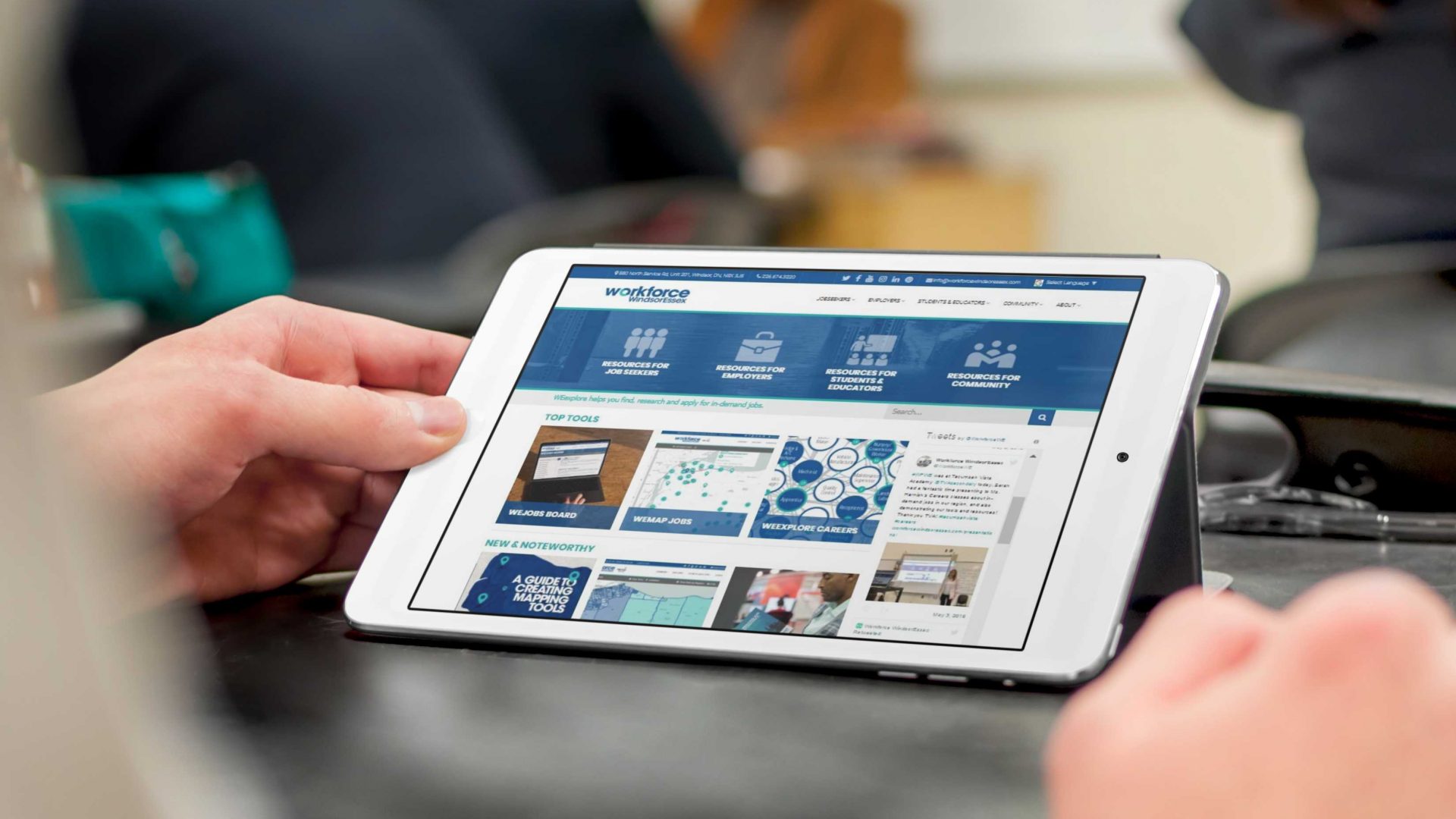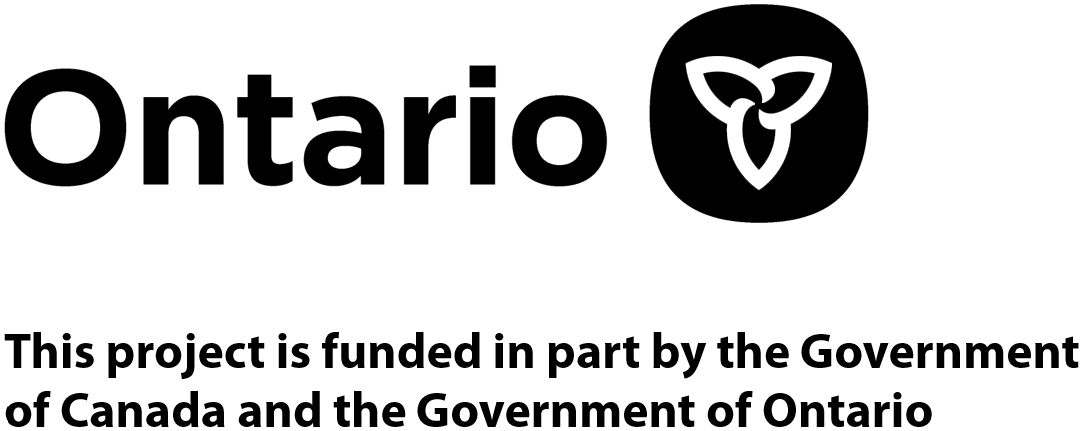Project Description
Experiential learning opportunities are hands-on learning experiences that help students prepare for future employment. Examples of experiential learning could include a co-op placement, an internship, an apprenticeship, an extra-curricular activity, a volunteer experience, an employer presenting to a class, a field trip, or a job shadowing experience. Participating in these experiences allows students to learn more about a future career and learn new skills.
Experience for Success had the goal of promoting experiential learning opportunities to local students and employers. We wanted to ensure that students and jobseekers were aware and able to take part in all opportunities available to them. The project included:
• creation of guides for parents, employers, and educators,
• a matching database for employers and students/educators,
• a blog series profiling participating students, employer hosts, and past participants, and
• events that contribute to students’ hands-on learning.
This handbook will provide an overview of the four components of the project, including challenges that arose and opportunities that could limit the challenge. We have also included best practice tips for successful implementation of the project in your community and testimonials from community partners that can share their experiences with using the materials, participating in the events, and using the matching database.
Guides
We created three guides as part of this initiative.
An Educator’s Toolkit for Experiential Learning included research on the employment benefits that students can gain from taking part in experiential learning opportunities, as well as reflection activities for students to do before, during, and after they participate in an opportunity. A Parent’s Guide to Experiential Learning highlights the educational and employment benefits for students that participate as well as ways that parents can support and facilitate hands-on learning and career exploration at home. An Employer’s Guide to Experiential Learning highlights the business case for employers to take part and host experiential learning opportunities, including class presentations, tours, job shadowing, and work placements. We established an advisory committee of local educator’s that work with experiential learning in their various institutions, including representatives from school boards and postsecondary institutions to ensure that the material was relevant and accurate for students of all ages.
Potential Challenge
While developing the Employer’s Guide to Experiential Learning, we had difficulty identifying employers that were willing to share their innovative methods for hosting students and providing meaningful experiences. We had hoped to feature a variety of employers throughout the guide in order for other employers to learn from the best practices that are being done in our community.
What We Learned
Consult with placement/program coordinators to identify hosts that have been very successful in utilising students and have shown initiative towards sharing their knowledge with the future workforce. Identifying not only employers that host students, but also those that play a large role in the community and support students in their learning, will ensure that you have a larger and more diverse pool of employers that can be highlighted. Highlighting employers that had previously expressed their support of experiential learning in comments for other projects can also ensure that you are able to include success stories from employer perspectives.
Best Practice Tip
Showcase a variety of experiential learning opportunities that are available, such as robotics teams, volunteering, and skilled trades summer camps.
Hub
To help coordinate opportunities for students to participate in an experiential learning experience, we developed an experiential learning hub where we facilitated connections between employers and educators and students. We created a database of employers that were willing to host students through a work placement, present to a class, or host a class tour. These employers would be suggested to educators and students that were looking for an opportunity. They had an option to specify a location in the region, the opportunity they were seeking, and a specific industry they were interested in.
Potential Challenge
Lack of educators and students looking for connections and lack of variety in employers signed up for the hub.
What We Learned
Look for additional places to promote the services you can provide to educators, students, and employers. Seek opportunities for promotion in collaboration with other organizations and while at external events, such as hosting a booth at parent nights or at job fairs for students looking for volunteer or job shadowing experiences.
Best Practice Tip
If your region has limited public transportation access, make sure to identify the location and transportation needs of participants before connecting with employers.
Blogs
An addition to this project was the creation of a blog series called Test Drive, where we share stories and photos of students currently completing work placements, employers that are hosting students, or professionals that took a placement when they were in school. We also shared tips on how parents can support out of the classroom learning as shown through a March Break series that highlighted different local activities that students can do with their families to explore careers. These blogs allow us to share real life stories with our audience including pictures to showcase what their work settings could look like.
Potential Challenge
Lack of time to identify and collect stories of a diverse group of individuals that can be showcased.
What We Learned
Have a designated person that can collect and share the experiences of individuals, with interviews, writing time, and dissemination of the stories pre-planned to ensure success of the series. Expanding your network to include experiential learning coordinators that can connect you with learners will also save you time in finding new people to profile.
Best Practice Tip
Feature a student before, during, and after a work placement to showcase the full experience that participants have.
Events
To create hands-on learning opportunities for local students, we hosted multiple events where students could learn about different skills, industries, and educational pathways. These events included: Manufacturing Day, where local secondary school students tour local company facilities to get a more realistic view of the manufacturing sector; Build A Dream, in which female secondary school students and their parents can meet local employers and employees working in STEM, skilled trades, and law enforcement; Take a Walk in My Shoes, where Health and Wellness SHSM students toured various departments at Windsor Regional Hospital to learn about various career opportunities; and an educator tour where French secondary school teachers toured multiple companies and community organizations in the area during a professional development day. Additionally, we launched the project with a press conference at a local secondary school with a variety of speakers. These speakers included educators, an employer, a manager for Community Living supports for persons with disabilities, and students to share about their experiences with facilitating, hosting, and participating in experiential learning opportunities. We received positive feedback on the project following the media coverage, including other workforce planning boards looking to implement a similar initiative in their community. Many of our events were hosted in partnership with other local community organizations and educational institutions.
Potential Challenge
Creating and hosting events for students that fit within the schools’ limited availability and resources.
What We Learned
Partnering on events that are held annually and already anticipated by educators will ensure that students and educators have set aside the time and resources they need to participate. Collaborating also reduces sole ownership of the resources and costs required for the event which can be high when students will require transportation and educators will need coverage. Contributing to events that schools are hosting will also ensure that students are able to participate during school hours and can be accompanied by a teacher.
Best Practice Tip
Encourage employers and industry representatives to participate and share about the work that they do by hosting class tours of their facilities or speaking to classes about their company and their personal career journey.
Keep these tips in mind if your organization is looking to implement a project focused on experiential learning. While we may have faced regionally-based challenges, the opportunities are applicable to all areas of Ontario.
To learn more about this project, visit www.workforcewindsoressex.com/experiential-learning-hub. For more information on other projects completed by Workforce WindsorEssex, visit www.workforcewindsoressex.com.
Testimonials from Project Launch Speakers
“The Experiential Learning Hub has been a great tool to help us as employers connect with students and apprentices looking at the opportunity to get into a skilled trade. It has made the process easier and more of a “one stop shop” to see available students in the area and what sort of apprenticeship opportunities they are looking for. By allowing us to match up available openings with what the student has shown interest in, we can be proactive with training plans and mentors to achieve what is best for our company and the student’s growth path. We are very excited to have this resources available to us and we thank Workforce WindsorEssex for their continued efforts in yet another tool to help close the skills gap in manufacturing. “
Jena Reid, Human Resources Manager, Cavalier Tool & Manufacturing Ltd
“Experiential Learning is a powerful way for learners and job seekers to explore their unique interests, skills and abilities, that can all lead to a rewarding career opportunity. We have seen firsthand that learners with intellectual disabilities who already have real work experience prior to graduation have much greater success in the workforce. This Toolkit for Experiential Learning is an impressive tool that can certainly assist educators and service providers in supporting their students and clients to achieve their career goals!”
Derek Roy, Manager of Community Living Supports, Community Living Essex County
“To prepare our students for the demands and the jobs of the 21st century, we as educators need to work with and take advantage of the skills, knowledge and experience of our corporate and community partners. This new educator toolkit provides our teachers with resources, ideas and tools to incorporate and implement experiential learning activities with linked questions to help students reflect on their experiences and next career steps. By building on Workforce WindsorEssex’s valuable resources as well as through experiential learning programs like COOP, SHSM, and workplace shadowing opportunities, students gain first hand experiences and contacts that will shape their futures, change mindsets and ensure our students have the right skills for the right opportunities.”
Thomas Couvillion, Principal, E. J Lajeunesse
Student Quotes about Experiential Learning
“…can get you a better chance at a good job.”
“…my amazing career took off from there.”
“…very valuable for me in the future”
“…it offers a break from the classroom.”
“the hands on training…has changed my entire life”
“my performance…led to [being offered] a full time position”

